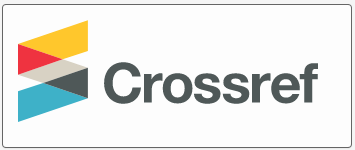Socio-Psychological Factor of Aggression among Adolescents and Adults in Modern Society
DOI:
https://doi.org/10.52340/idw.2023.82Keywords:
Direct aggression, indirect aggression, emotional aggression, instrumental aggression, frustration theory, social learning theoryAbstract
The study of the problem of aggression, an essential factor of social and psychological existence of modern society, in adolescents and adults is one of the foundations for the education of a healthy future generation of our country and the formation of a highly developed noble society in general. Its study analysis and coping perspectives unite many scientific disciplines, among which psycholinguistics, sociolinguistics and cultural studies are leading. Types of aggression, contexts, bipolar relations and, above all, a highly loaded classification grid provide a clear picture of the problem and contribute to the creation and establishment of a conscious methodology to overcome it. The communicative-pragmatic relations of the complex social environment and psyche-psychology of each people/ethnic group are very complex, it is a conglomerate of different subsystems.
Downloads
References
Anderson, C. A./ Bushman, B. J. (2002): Human aggression. In: Annual Review of Psychology, 53, 27–51.
Joh. Engelkamp /Wilhelm Fink Verlag, München 1974, S. 14, 23-28
Heinrich Löffler /Germanistische Soziolinguistik, Erich Schmidt Verlag 2005, S. 35-40,79-90
Reiner Dietrich / Psycholinguistik, Metzlerische Buchhandlung 2002, S. 20-44
Baker, J. A. (2006): Contributions of teacher-child relationships to positive school adjustment during elementary school. In: Journal of School Psychology, 44, 211–229.
Baker, J. A. (2006): Contributions of teacher-child relationships to positive school adjustment during elementary school. In: Journal of School Psychology, 44, 211–229.
Barth, J. M./ Dunlap, S. T./ Dane, H./ Lochman, J. E./ Wells, K. C. (2004) Classroom environment influences on aggression, peer relations, and academic focus. In: Journal of School Psychology, 42, 115–133.
Bibou-Nakou, I./ Stogiannidou, A./ Kiosseoglou, G. (1999): The relation between teacher burnout and teachers’ attributions and practices regarding school behaviour problems. In: School Psychology International, 20, 209–217.
Boulton, M. (1994): How to prevent and respond to bullying behaviour in the junior/ middle school playground. In: Sharp, S./ Smith, P. K. (Eds.): Tackling bullying in your school: A practical handbook for teachers, 103–132. London: Routledge.
Boulton, M. J. (1997): Teachers’ views on bullying: Definitions, attitudes and ability to cope. In: British Journal of Educational Psychology, 67, 223–233.
Camodeca, M./ Goossens, F. A./ Meerum Terwogt, M./ Schuengel, C. (2002): Bullying and victimization among school-age children: Stability and links to proactive and reactive aggression. In: Social Development, 11, 332–345.
Cicchetti, D./ Hinshaw, S. P. (2002): Prevention and intervetion science: Contributions to developmental theory. In: Development and Psychopathology, 14, 667–671.
Fergusson, D. M./ Horwood, L. J./ Ridder, E. (2005): Show me the child at seven: The consequences of conduct problems in childhood for psychosocial functioning in adulthood. In: Journal of Child Psychology and Psychiatry, 46, 837–849.







